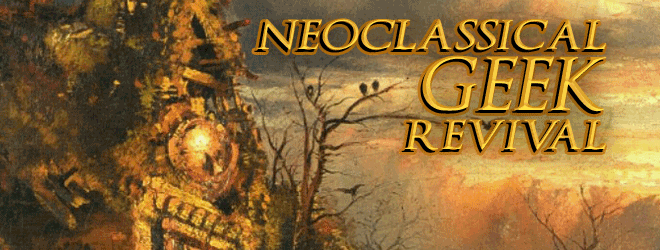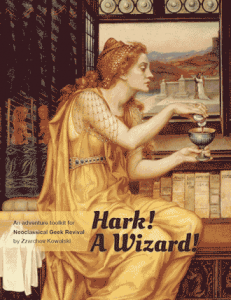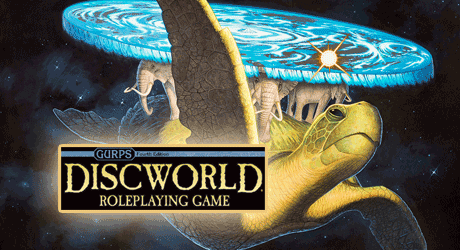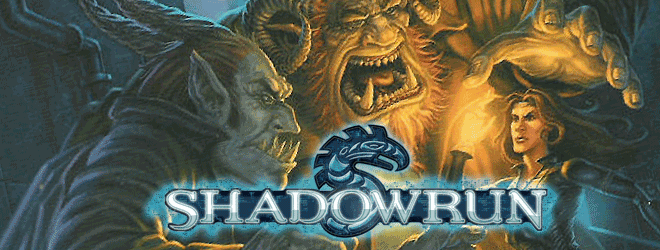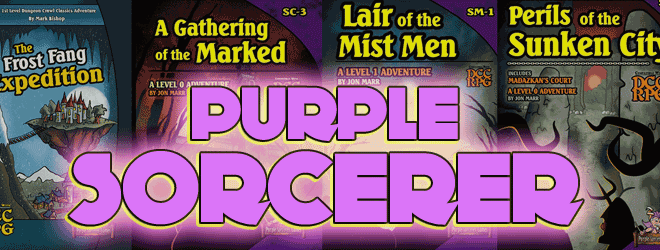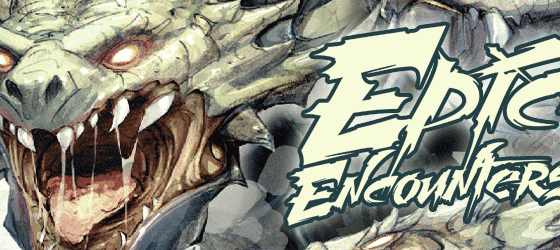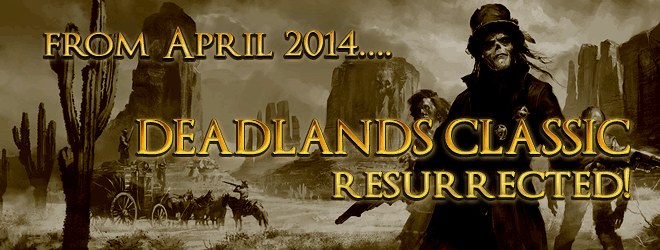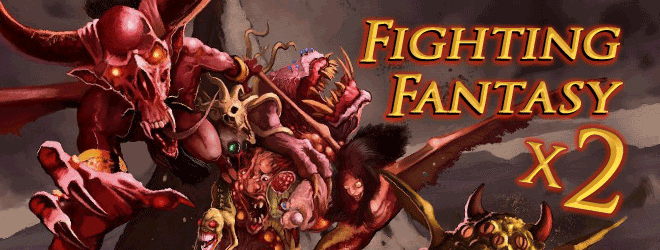In April 2019 we presented the Neoclassical Geek Revival Bundle, featuring the Old School-inspired FRPG Neoclassical Geek Revival by Canadian designer Zzarchov Kowolski.
Zzarchov made his rep with innovative adventures for Old School Revival RPGs, such as Thulian Echoes and Scenic Dunnsmouth for Lamentations of the Flame Princess. Zzarchov also publishes his own OSR-inspired game, Neoclassical Geek Revival (“Geek,” not “Greek”!), a take that overhauls classic FRPGs to such an extent that no original rules survive. Like Dungeon World after it, NGR uses modern mechanics to conjure the Old School vibe in highly individual ways. For instance, wizards have the power of Degeneracy. Their delirium-spawned insights grant them spellcasting bonuses according to whether they’re Eccentric, Withered, Corrupted, or Doomed. Bards have no rogue powers nor magic; they just talk. But they can reshape the campaign world through oration and leadership, and use razor-sharp wit to cause deep psychological scars. Warriors get “trademark items” that grant presence bonuses in combat, and rogues get parkour-style movement. Characters can dual-class as Fools, fish-out-of-water non-adventurers who get luck modifiers.
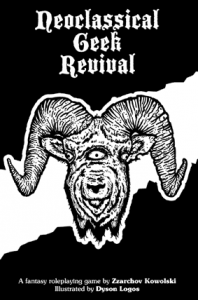 There are many other unusual touches. Newly created characters start with pre-built Fate-like relationships such as Family, Romance, or Life Debt. In place of alignments, NGR characterizes morality through “major and minor concerns” based on personal choices between “liberty versus authority” and between “self interest versus the good of the community.” The conflict system uses five types of modifiers (Combat, Presence, Stealth, Occult, and Faith) based on character class, level, and attributes. Conflict effects include straight physical damage, suspicion, and stress resulting in death, capture, or discrediting.
There are many other unusual touches. Newly created characters start with pre-built Fate-like relationships such as Family, Romance, or Life Debt. In place of alignments, NGR characterizes morality through “major and minor concerns” based on personal choices between “liberty versus authority” and between “self interest versus the good of the community.” The conflict system uses five types of modifiers (Combat, Presence, Stealth, Occult, and Faith) based on character class, level, and attributes. Conflict effects include straight physical damage, suspicion, and stress resulting in death, capture, or discrediting.
In October 2018 a player in Zzarchov’s own NGR game, Dan D., analyzed the game on his blog, I Failed My Save. One highlight: “Every facet of NGR awards XP in a slightly different way, and I feel it’s done in a way that de-emphasizes combat while still promoting risk-taking. A great example is that you get increasing XP values for each new room in a dungeon you explore. As you deplete your resources, that next room could be worth 450 XP now, or zero XP once you come back to the dungeon a second time. That’s because that room will then be your first new room, whereas it’s the tenth new room this time around. That sort of press-your-luck enticement is embedded in NGR (and Zzarchov’s GM style, for the record). It puts a heavy risk-versus-reward ball in the players’ court at all times, and it’s when they are faced with real, meaningful choices that players get invested in the game.”
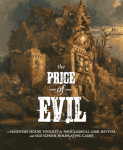 NGR focuses tightly on the actual-play experience at the table. Characters have fate and destiny points that get them out of tight jams, and each character also has a lucky number: “When you roll it on a d20, please be sure to bring it up and complain if something cool doesn’t happen.” Special things can happen during the game if it’s the player’s birthday. The rulebook’s “End of the Session” chapter presents several systems to acknowledge players who did awesome things during the game and also those who wear an awesome hat or cape, an eye patch, “’80s hair,” etc. The highest honor is recognition as the session’s Most Valuable Player.
NGR focuses tightly on the actual-play experience at the table. Characters have fate and destiny points that get them out of tight jams, and each character also has a lucky number: “When you roll it on a d20, please be sure to bring it up and complain if something cool doesn’t happen.” Special things can happen during the game if it’s the player’s birthday. The rulebook’s “End of the Session” chapter presents several systems to acknowledge players who did awesome things during the game and also those who wear an awesome hat or cape, an eye patch, “’80s hair,” etc. The highest honor is recognition as the session’s Most Valuable Player.
Zzarchov publishes a varied line of sandbox-style Neoclassical Geek Revival scenarios and toolkits. Each scenario includes statistics for both NGR and for generic Old-School D&D retroclones. He writes with a lively wit that makes each book a pleasure to read. This offer presented three versions of the NGR rulebook and most of the support line for a bargain price.
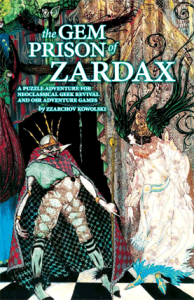 There were six titles in our Starter Collection (retail value $38) as DRM-free .PDF ebooks, including the complete Neoclassical Geek Revival rulebook (in three separate versions illustrated by Dyson Logos, Alex Mayo, and Scrap Princess), plus the 1st-level adventure The Temple of Lies, the handy play aids Hark! A Wizard! and Rampaging Monsters, and two remarkable scenarios from our November 2015 Old School Revival 3 offer: The Gem Prison of Zardax (hahaha!) and The Gnomes of Levnec. All these dual-statted scenarios and play aids work with both the NGR rules and with your favorite OSR retroclone.
There were six titles in our Starter Collection (retail value $38) as DRM-free .PDF ebooks, including the complete Neoclassical Geek Revival rulebook (in three separate versions illustrated by Dyson Logos, Alex Mayo, and Scrap Princess), plus the 1st-level adventure The Temple of Lies, the handy play aids Hark! A Wizard! and Rampaging Monsters, and two remarkable scenarios from our November 2015 Old School Revival 3 offer: The Gem Prison of Zardax (hahaha!) and The Gnomes of Levnec. All these dual-statted scenarios and play aids work with both the NGR rules and with your favorite OSR retroclone.
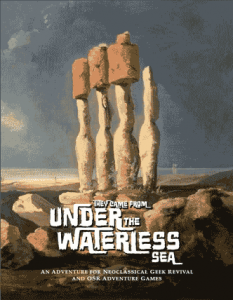 Those who paid more than the threshold (average) price also got our entire Bonus Collection with five more scenarios and supplements worth an additional $51, including City of Tears (a desert-themed dungeon and campaign setting); Under the Waterless Sea (the siege of an undersea city burned to the ground — rather, to the ocean floor); and the holiday adventure Down in Yon Forest, plus the play aids Lost in the Wilderness (wilderness encounters) and The Price of Evil (use a pack of cards to generate a haunted house).
Those who paid more than the threshold (average) price also got our entire Bonus Collection with five more scenarios and supplements worth an additional $51, including City of Tears (a desert-themed dungeon and campaign setting); Under the Waterless Sea (the siege of an undersea city burned to the ground — rather, to the ocean floor); and the holiday adventure Down in Yon Forest, plus the play aids Lost in the Wilderness (wilderness encounters) and The Price of Evil (use a pack of cards to generate a haunted house).
Ten percent of each payment (after gateway fees) went to this offer’s designated charity, the Electronic Frontier Foundation.
